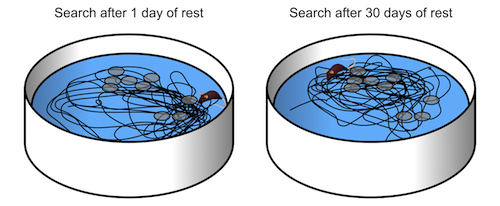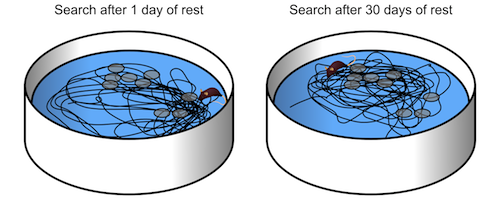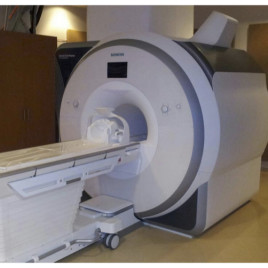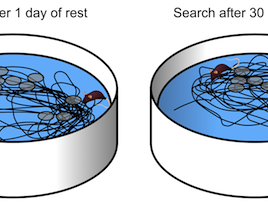
Search patterns of mice looking for a hidden platform in a pool of water; grey circles indicate places the platform had previously been found. One day after training, mice spent most of their time looking in the last place they found the platform, but after 30 days they tended to search in the more likely location. (Credit: Blake Richards)
An experiment with mice sheds light on how the brain turns individual memories into knowledge over the course of time.
Mice were trained to swim in a pool of water and look for a hidden platform that could be in one of several locations, with some locations more likely than others.Mice that were tested one day after training tended to search for the platform in the last location they found it, but mice that had 30 days to rest and consolidate memories spent more time looking in the more likely locations.
The results suggest that memories can amalgamate into knowledge over time even when they are not being constantly re-enforced.
Original research paper published in the the journal Nature Neuroscience on June 1, 2014.
Names and affiliations of selected authors



